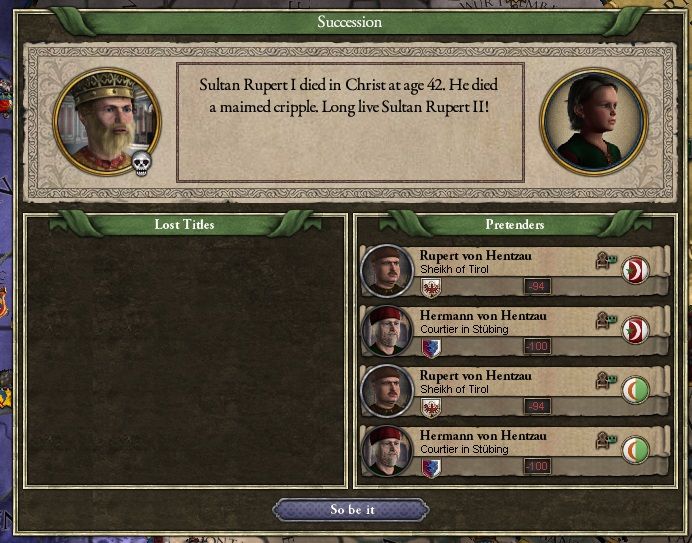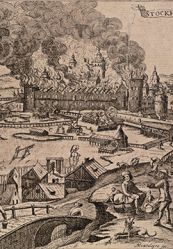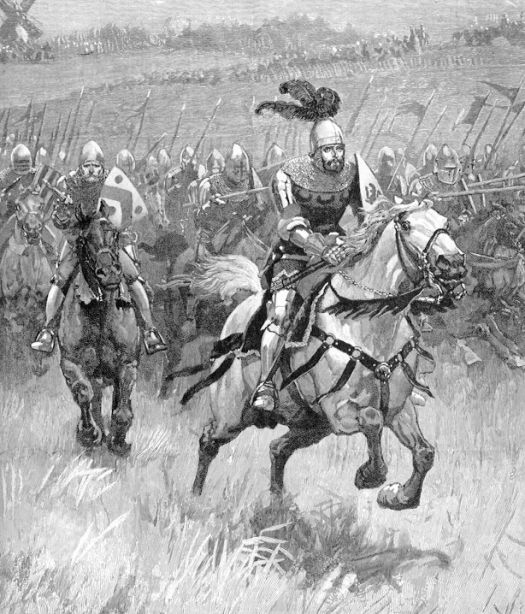The Sons of Raghnall
By King of Men, Scotland
Like his father Gilpatrick, Trond was a warrior king, living toujours en vedette and rarely even wintering in his ostensible home estates. Gilpatrick, however, had been a successful conqueror, ranging far from his own borders and adding to them. Trond was not so lucky. His father had held down most of Scandinavia and Finland by sheer force of a brutal personality; upon his death, all the sullen resentment at foreign rule that had smoldered under his firm thumb burst into open flame. Even so, his elder son Ragnvald might have kept the realm together with only a mild bloodletting, had he not died two months after his father. By King of Men, Scotland
The second death was never proved to be the work of Swedish assassins; but the rapid election of Queen Astrid to the throne of Sweden lends weight to the suspicion. Faced with rebellion all along Norway's coast, with both Trondhjem and Bergen attempting to reassert the ancient rights of the Lade jarls, Trond was initially in no position to take revenge. Astrid died peacefully in her sleep, still Queen of a Sweden at peace.
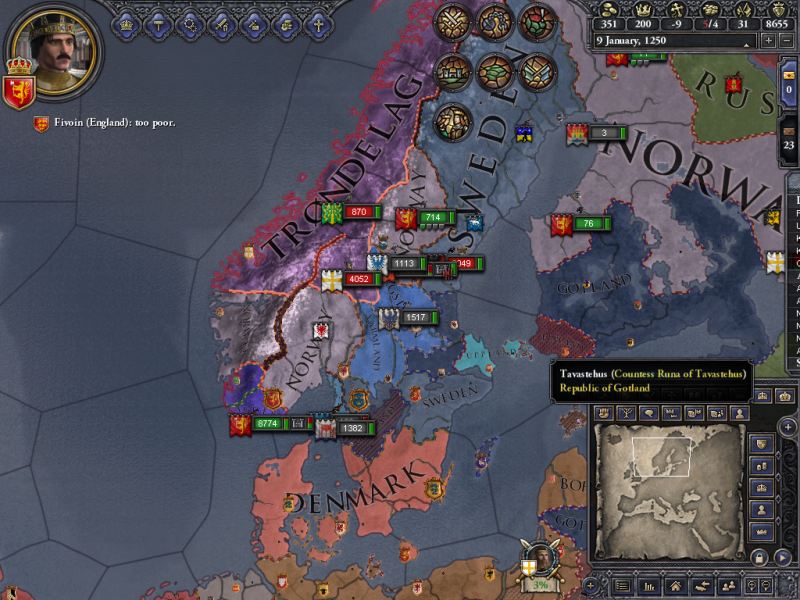
Bit of a civil war...
Trond, nonetheless, was his father's son. In two years he drove the northern jarls back to their mountain fastnesses; in five he reduced them again to a sullen obedience - temporarily, as later events would show - and turned east. The resulting war is known by the poetic name of the "Years of Wolf and Raven", for the two species that are said to have been its only victors. That is, perhaps, exaggeration; but it is true that two decades of constant war left the reunited Scandinavian kingdoms poverty-stricken and exhausted. All the dread litany of medieval-style attritional warfare appears in the chronicles, as though Death were ticking off items in a list: Fields untended by levies called up for years on end; plagues rampaging unchecked through hungry populations; productive farms burned; wealthy cities sacked and put to the torch.
Although Trond remains a byword for cruelty even at this distance in time, in fairness he is not entirely to blame. He began, as his father had, with fairly lenient punishments: A large gift of gold, acknowledgement of his overlordship, and a jarl was reconciled. But Gilpatrick had had the knack of making his fractious vassals realise that steel lay under the velvet glove. Trond, though sufficiently gifted as a war leader to reconquer both Norway and Sweden - twice and three times - was no politician; he could not make the jarls take him seriously. His task was undeniably difficult; jarldoms in Gilpatrick's Norway were not acquired by one's skill at crocheting. Still, the fact remains that even when he turned from ransoms to the headsman's axe, and later to more lingering executions, his vassals refused to take his threats seriously. Perhaps a more charitable explanation is that they believed the threats, but simply were not all that afraid of dying, and thought the risk worth taking; the outcome is in any case the same - twenty years of war, and wolf and raven the victors.
In this dark time, Trond's enemies naturally turned to every weapon they could muster, including propaganda and libel. The rumours about the uses to which Gilpatrick put his dungeons had been sniggers, whispers, a deliciously salacious tale about Queen Åsta's tastes. Trond's reign saw the whispers - which had been subsiding in Gilpatrick's old age - revived, redoubled, and screamed from the rooftops. Nor, in truth, was this entirely unfounded; in the later stages of the endless civil war, Trond did turn to the rack, the screw, and the whip to punish the repeated rebellion. After more than a decade of fruitless fighting, any man might become rather exasperated at the refusal of his vassal to accept the verdict of the battlefield; Trond's famous outburst, "Sweden shall be cleansed with fire and the sword" - upon hearing of the Jæmtings rising against him for the third time in five years - is only too believable.
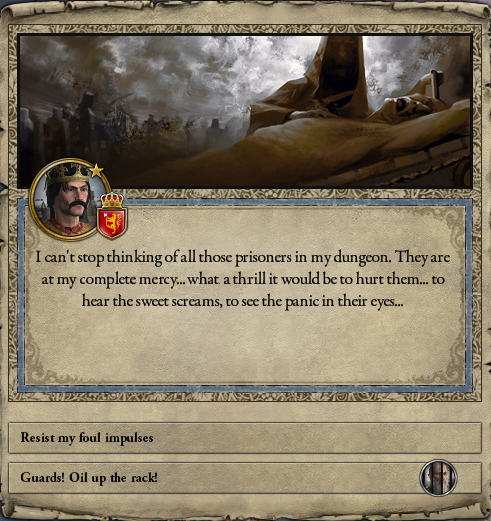
King Trond's temptations.
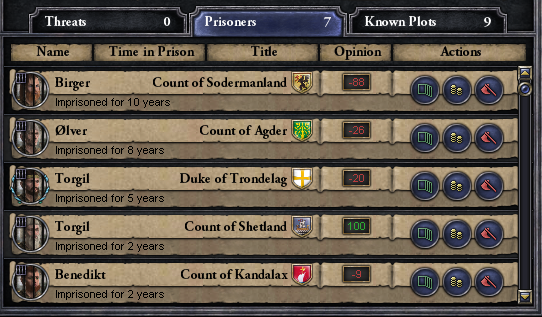
The infamous dungeons are getting rather full up...
To be sure, arbitrary cruelty and brutal executions were nothing unusual in these hard-bitten times; but noblemen were usually exempt, meeting at worst with the headsman's axe. It was his victims' position and privilege, not their fates, that made "Trond the Terrible" a byword wherever Norwegian and Swedish exiles might fetch up. An even worse legacy was the grinding poverty of the northern nations after the long, draining decades of fighting. As late as 1450 there were untilled fields in Sweden that had lain under the plow two hundred years earlier.



